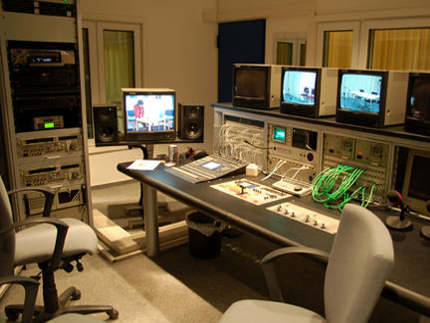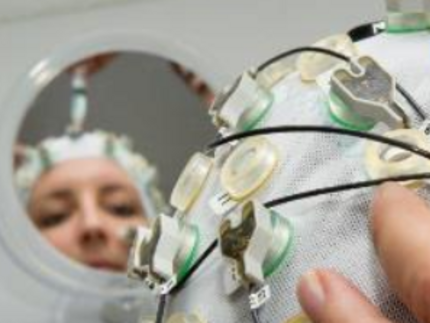Composition of the structural area
The intra-faculty unit “Cognitive Science” consists of three departments, whose interests are each represented within the structural unit by a department spokesperson and a research spokesperson. At present, Prof. Dr. Audrey Bürki is the spokesperson of the structural unit. This position is taken over by the representatives of the departments every two years on a rotating basis.
Department Sports and Health Sciences
Speaker: Dr. Berno Bahro
Substitute: Dr. Janet Kühl
The Department of Sport and Health Sciences currently unites seven chairs that deal with different issues of sport and exercise in teaching and research. In the broadest sense, the basic academic principle within the department is the interdisciplinary consideration of research objectives and questions on the topics of sport and health across the life cycle. These include, for example, issues related to junior competitive sport and high-performance sport, the interaction between motor function, cognition, and (mental) health, lifelong plasticity through learning and physical exercise, social topics related to sport and health as well as management, professional services, and sports economics. The degree programs offered at the department introduce the significance and complexity of sport and health to many professional fields of sport, health, and education.
Find an overview of the chairs at the Department of Sport and Health Sciences here:
Department Linguistics
Speaker: Prof. Dr. Martin Salzmann
Substitute: Prof. Dr. Outi Tuomainen
As one of the largest departments of linguistics in Germany, the current ten professors and their academic staff in the Department of Linguistics cover a broad spectrum of teaching and research: Grammar theory (phonology, morphology, syntax, semantics), language acquisition and language processing, neurolinguistics, computational linguistics (both theoretical and applied) and clinical linguistics.
An overview of the professorships in the Department of Linguistics can be found here.
Department Psychology
Speaker: Prof. Dr. Ralf Engbert
Substitute: Prof. Dr. Aileen Oeberst
The Department of Psychology at the University of Potsdam was founded in 1992. The twelve professorships that make up the Department cover a wide area of research and teaching: Experimental and Biological Psychology, Biological Psychology and Affective Science, Developmental Psychology, Work and Organizational Psychology, Counseling Psychology, Clinical Psychology and Psychotherapy, Cognitive Neuroscience, Educational Psychology, Social Psychology, Personality Psychology and Psychological Assessment, Research Methods, and Cognitive Science.
The Department of Psychology offers a polyvalent Bachelor's degree programme in Psychology and three Master's degree programmes: Psychology with a focus on Clinical Psychology and Psychotherapy; Psychology with a focus on Industrial and Organisational Psychology or Cognition and Behaviour; Cognitive Science - Embodied Cognition.
Humboldt-Professorship
Prof. Dr. Harald Clahsen
Professor Harald Clahsen studied linguistics, sociology and mathematics at the Universities of Düsseldorf, Hamburg and Wuppertal. He received his doctorate in 1981 and his habilitation in general linguistics in 1987. In 1993, he was appointed Professor of Linguistics at the University of Essex in the United Kingdom, where he served until 2011. In 2011, he was appointed to an Alexander von Humboldt Professorship at the University of Potsdam. He established the Potsdam Research Institute for Multilingualism (PRIM) there, where he remains active today. He was recently appointed Senior Professor.
Professor Clahsen is concerned with the nature of language ability and use in the individual, in particular with language learning in children and adults, with the mechanisms and strategies of language production and comprehension, with disorders of language ability and acquisition. He is particularly interested in the multilingual individual. How do bilingual and multilingual individuals navigate the use of their different languages? At what age is it best to learn a new language? How can new media promote?
Prof. Clahsen has authored 9 books and over 150 research articles on these topics and has received numerous scientific prizes and awards for his work. He has led several large research projects and is co-editor of the internationally renowned journal Bilingualism: Language and Cognition.




